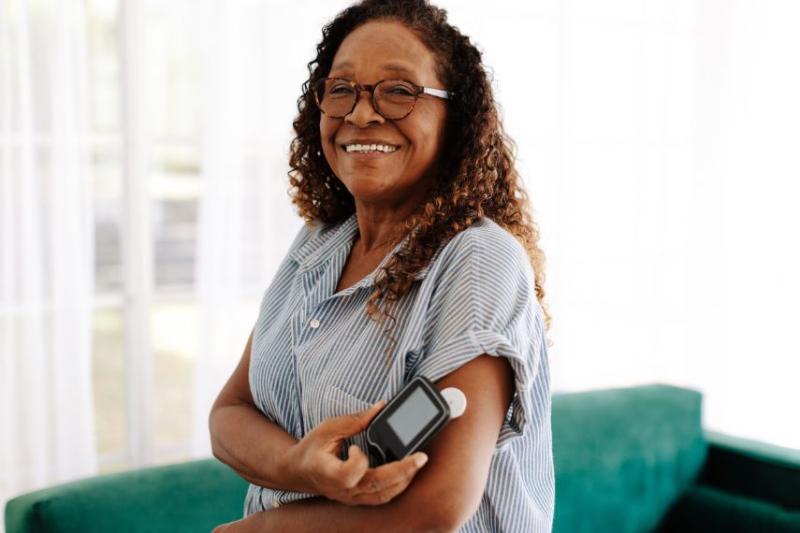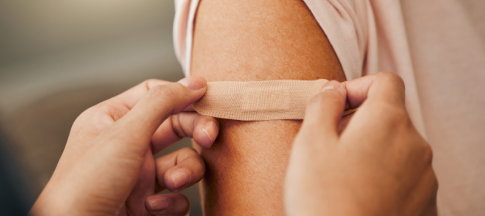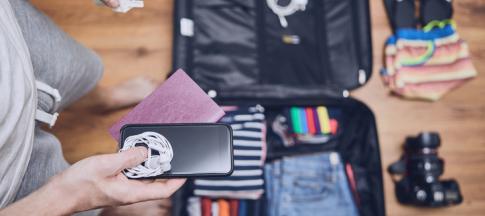
Travelling with type 1 or type 2 diabetes calls for a little extra preparation – but don’t let that stop you exploring.
We’ve broken down everything you need to know about travelling with diabetes and some advice on how to prepare for your trip.
Why do people with diabetes need travel insurance?
Travel insurance gives you a safety net if you get ill on your trip.
If you’re diabetic, you might need extra care when you’re on holiday. For example, if you get ill and need insulin or other diabetes medication.
This means you might need to make an insurance claim to cover any emergency medical costs.
What are the risks of travelling with diabetes?
Travelling with type 1 or type 2 diabetes comes with extra risks.
Changes in your diet, the weather, your sleep and what you get up to on holiday could affect your blood sugar levels and make you ill.
What should travel insurance for travellers with diabetes cover?
A travel insurance policy should cover:
- emergency medical costs
- bringing you back to the UK if it’s medically necessary
- lost, stolen or damaged medication – like your insulin
- costs if you need to cancel or cut your trip short because of your diabetes
Should I declare my diabetes to my travel insurer?
Yes. Diabetes is a pre-existing medical condition, so you’ll need to tell your insurer about it when you buy a policy.
Your insurer needs to know about your diabetes to make sure you get the right treatment if you get ill on your trip.
If you don’t tell us and then need to claim for medical costs, we might not cover them – even if your claim isn’t related to your diabetes.
What will my insurer ask during the screening process?
We'll ask you about:
- your diabetes medication
- whether you’ve been in hospital for your diabetes recently
- if you have any related conditions, like high blood pressure
Everything you tell us is between us – it's just to make sure we can give you the right cover.
How much is travel insurance for people with diabetes?
It’s usually more expensive if you have diabetes, or another pre-existing medical condition.
But paying for your own medical care abroad would cost a lot more.
The price of your policy will always depend on:
- where you’re going
- how long you’re going for
- what your plans are for your trip
- if you have any other health conditions
- the nature of your pre-existing condition
How should I prepare for travelling with diabetes?
Here are some key things to think about before you jet off:
Talk to a medical professional before you travel
If you’re nervous about travelling, chat to a medical professional to see if there’s anything you need to prepare before you go. You can:
- get a prescription for twice the amount of your regular medication – just in case you lose it or you’re delayed
- get advice on when you should be taking your insulin – especially if you’re travelling to another time zone
Carry your insulin with you
Pack your insulin in a cool bag and keep it in your hand luggage so it’s always to hand. Read our guide on travelling with medication.
Pack spare pumps and pens
Make sure you pack extra insulin pumps just in case you lose some.
Stock up on snacks in case of delays
Take some snacks in case your flight is delayed – you’ll thank yourself later!
Take a doctor’s note with you
Pack a letter from a medical professional about your diabetes. This should explain:
- the medication you take
- any glucose monitors or insulin pumps you use
- any other equipment you need, like needles or syringes
You can show this letter to customs, security staff or medical professionals.
Take a diabetes identity card
If you don’t already have one, it could be worth getting your hands on a diabetes ID card. These show your name, photo and what someone should do if you get ill.
Carry emergency details
Keep emergency details to hand for the country you’re travelling to – this could help you avoid a last-minute panic.
Set an early alarm!
If you’re flying, arrive at the airport in plenty of time so you can tell the airline staff about your medication and equipment. You can also contact the airline before you go.
Does a Global Health Insurance Card (GHIC) cover my diabetes?
A GHIC lets you access medical treatment in most European countries.
If you need treatment for any diabetes-related issues, the GHIC can make it cheaper or even free.
It’s important to remember that the GHIC isn’t the same as travel insurance. It doesn’t apply everywhere and only works at some clinics.
It also doesn’t cover you for any other costs, like cancelling your trip or bringing you back home.
Read our guide on GHIC cards, including where and when you can use them.
What should I do if I get ill while abroad?
If it’s urgent, call the emergency services or go to the nearest hospital.
Call your insurer’s emergency helpline as soon as possible. If you’re with us, our 24-hour helpline is +44 (0) 292 010 7777.
You should call us before going into hospital or if your medical costs are likely to be over £500, so we can help you.
Read our guide on what to do if you get ill abroad for more advice.
MoneyHelper Directory
If we can’t cover your medical condition, you can use the MoneyHelper directory to find a specialist insurer who might be able to cover you if you’ve been:
- refused travel insurance or had your policy cancelled
- offered cover with a medical exclusion that you can’t remove from your policy
- quoted a price for a travel insurance policy with high medical costs
MoneyHelper makes it easier to find and compare policies you can afford that cover your condition and medical needs. Access the MoneyHelper directory online or call MoneyHelper on 0800 138 7777 (phone lines are open Monday to Friday, 8:00am to 6:00pm, excluding bank holidays).


